"The Guilt Is Heavy. It's Like I Killed Myself That Day": People Who Killed Someone Share Their Stories
Few things are more nightmarish than the thought of taking another person's life. For the Quora users below, though, it's not a nightmare...it's a reality. Whether they killed by accident, during a war, or even by choice, the fallout was intense and full of profound, long-term psychological repercussions. Read on to hear their stories and how taking a life affected their lives:
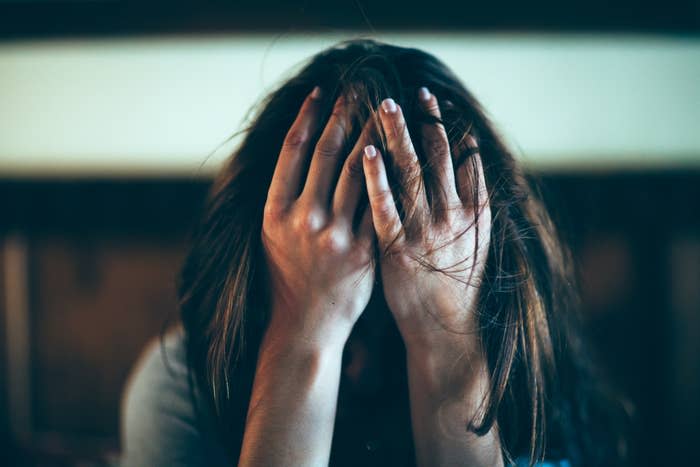
The stories detailed below come from this Quora thread. While we cannot confirm their validity, the writers say they are speaking from their personal experiences.
WARNING: This post discusses violence, death, and PTSD. Please proceed with caution.
1."This is probably the most personal question I could ever answer. To say my answer is complex and that I am going to have difficulties expressing exactly how I have felt and still feel about murdering someone is an understatement. I guess the beginning would be the best place to start. When I took another man's life, I was just 19. Looking back now, I can honestly say I felt immense peer pressure to go through with the murder. I felt like I would be seen as a weak punk if I let another man get over on me. I was a drug dealer, and I felt I had a reputation to uphold. I can see all this now, but I could see none of it at the time. I realize now I was in a very bad place in life. I had a serious drug addiction and felt worthless and unworthy of love, so in return, I placed little value on my life or on the life of anyone else. These feelings made me feel powerless, and I lashed out."
"My lashing out cost another human his life. I am ashamed to admit it, but at the time, I felt a great weight was lifted off my shoulders when I pulled the trigger. I felt like I had finally stood up for myself. I was completely irrational. I realize now it is like my friend David Monroe always says, 'hurt people, hurt people.' I was really hurting, and I didn't know how to ask for help.
I continued to justify my actions for a long time, but somewhere deep inside, I've always known that there was never any justice in taking someone's life. Admitting to myself I was feeling scared, lonely, unworthy of love and respect was just too hard. Also, by admitting these feelings, I would have to accept what I did and how I affected the world. This was hard for me, but I am finally there over fifteen years later.
Now I feel sadness over murdering someone. I feel I have robbed my victim's family of the most precious thing in life. I feel immense sorrow for this. I feel I have robbed my family of truly ever knowing me. I feel like I have created fear in my community. I feel that I have done the world a great disservice and that I owe a debt that I can never fully repay. I am full of guilt and shame over my actions. I never want anyone else to feel the way I do."
—Tommy W., Quora
(All communications between inmates and external channels are facilitated by approved volunteers since inmates do not have access to the internet. This program with Quora is part of The Last Mile San Quentin.)
2."It's been two years and four months. Every day that goes by is very 'one foot in front of another.' I'll make a long story short. It was a freak accident — a horrific freeway accident. No drinking or drugs, speeding, texting or calling, reckless driving, etc. The highway patrol officer who read through the reports told me, 'You would have had to be a ninja to avoid it; you are not at fault.' Relief, right? WRONG. I have survivor's guilt, sadness for their family, sadness for them. I feel guilty that I facilitated their transition and angry that I didn't do things differently. I've wanted to end it all because I know I don't deserve to live more than them."
"The list goes on. It's hard to drive because I get flashbacks, panic attacks...shaking, crying, nightmares of that night. They didn't deserve this. Their family doesn't deserve this. They were both beautiful people with potential, love, family, and life...and then it was over. And I did it.
I have come to understand how different forms of guilt work, and I have become accustomed to the torture I inflict on myself mentally. I deserve at least that.I will never fully forgive myself and never get over it. I think of them often. Sometimes, I watch their videos. I include them when I pray and meditate, and I ask them to forgive me. I pray for their families to find healing one day. They were heroes. They were beautiful people."
—Jasmine H., Quora
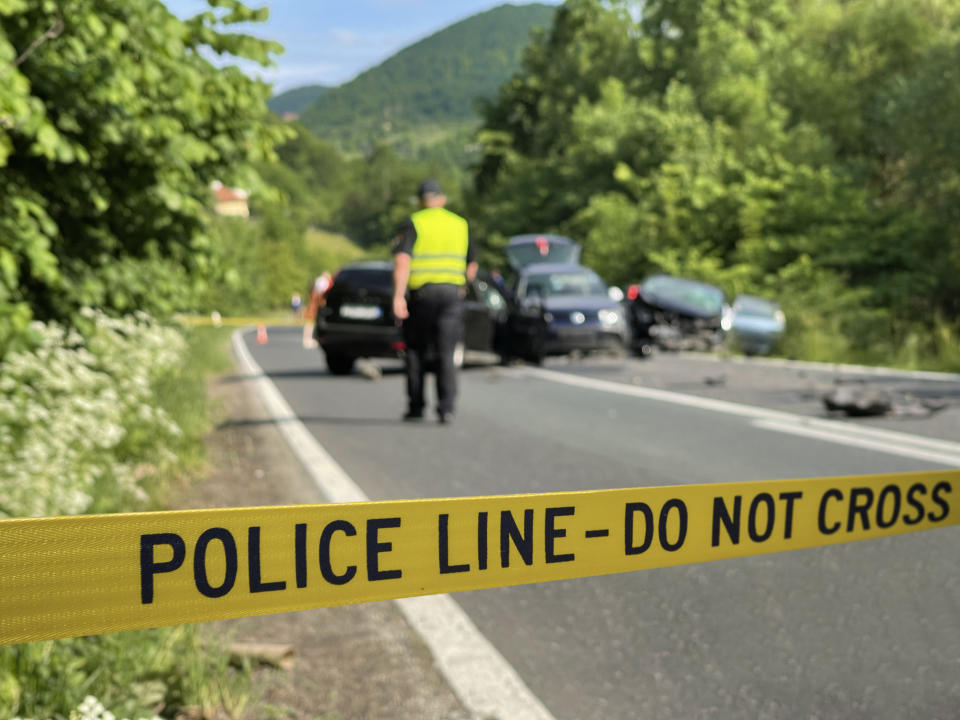
3."The psychological effects of having ended human life still haunt me 20 years later. I feel compelled to try and correct the things I have done even though my actions were a normal part of war. The initial feeling was exhilaration and a sense of invincibility for me. Guilt and remorse started to creep in slowly over time and became more dramatic once I had children. As I grew older, I became more aware of the value of human life. The dreams seldom trouble me. It's during moments of quiet reflection that their faces sometimes appear. I wonder what would have become of their lives had I not ended them."
—Anonymous, Quora
4."I am a Vietnam vet, and as some of you know, we were not looked upon kindly by our contemporaries. For that reason I have been reluctant to share this aspect of my experience. I walked point for most of my tour, so it was natural that I would make first contact when on patrol in narrow vegetation. The first time I killed someone was in an eye-to-eye encounter. I had just turned a curve on a trail. The other guy was wearing classic North Vietnamese Army gear with an AK47 at a semi-relaxed position. Even though I had trained and thought about this happening, it was nonetheless shocking, and the adrenaline surge was huge. His eyes opened very wide, and time seemed to slow down. He was just as surprised as I was. Reflexes took over, and I beat him to the draw."
"There was absolutely no thought involved in shooting; it was simply conditioned reflexes. Though I became familiar with the adrenaline aspect, it was not something that I would like to become addicted to. As time went on and buddies were killed by the enemy, my attitude became more aggressive.
Later I did dwell on some of the actual people. Sometimes, we would check the bodies for information and come across pictures of their family. That was a little tough for me. But I would like to be clear that it is kill or be killed in that situation."
—Roger S., Quora
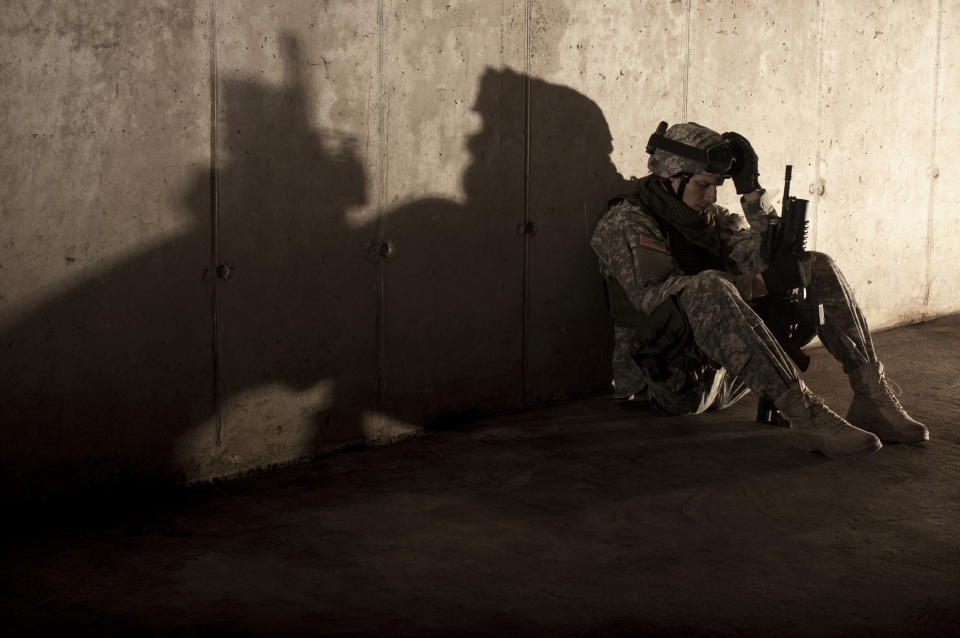
5."The first thing I did was run like I've never run before or since. My lungs burned. My legs felt weak. When I stopped, I puked. I couldn't believe what just happened. I saw the blade go into one side of his neck and out the other. I was jumped by three gang members, and it just happened so fast. About three years later was the first time I saw him...barely. Just a quick glimpse, and then he was gone. Now, about twenty years later, I see him all the time. I think he's waiting for me to die. I think the traumatic experience was too much. The guilt is heavy. It's like a building sits on top of me. It's like I killed myself that day."
—Anonymous, Quora
6."I have killed a man. I wanted to pick up a few things from Walmart, so I headed there around 8 p.m. Little did I know this would be the biggest mistake of my twenty-two years of living. I arrived at Walmart safely, picked up a few other silly items (home decor, cleaning supplies, etc.), and headed home. My drive went smoothly until I was a block away from home. It was around 9:45 p.m., and I was literally just thinking, 'I almost made it home.' I was traveling around 35–45 mph. The street lights are very dim on this road, and you can barely see what's in front of you at night. I saw a red car parked on the opposite side of the road, but since this road is very scenic (during the day), I didn't think much of it. That is when I heard the horrifying thud — bdunk bdunk bdunk — and I slammed on my breaks. As soon as I opened the door, I heard the blood-curdling screams."
"A man ran towards my SUV, called me a bitch, and informed me that I just killed his dad. His brother followed, and I immediately started screaming. I still couldn't see his father. I ran to the red car, and his two sons hugged me and told me, 'Ma'am, you didn't do anything wrong. There was a family altercation, and he wanted to die. We called an ambulance for him to get him some help.' I am still screaming. I come upon his body, sitting in a pool of blood. Within minutes, a policeman pulls up. He immediately starts rendering aid. Minutes later, an ambulance arrives. I am still in shock. They started CPR before putting his barely alive body in the ambulance. He was life-flighted to a local hospital.
It turns out that he was lying in my lane — facedown — wearing a black sweatshirt against black pavement.
He told his ex-wife, who was at the scene, that he wanted to kill himself because she did not want him back. I wonder why the ex-wife wouldn't put her car in front of his body. I wonder why the two sons couldn't seem to move him from my lane. I wonder why it had to have been me.
The man was pronounced dead upon arrival at the hospital. I'm twenty-two years old. What could I have done that was so wrong that I deserve to live with this for the rest of my life? I will never stop replaying the horrifying sound of running the man's body over, the blood-curdling shrieks, and the image of the man lying in a pool of his own blood.
I don't know if I will ever be able to live with myself."
—Anonymous, Quora
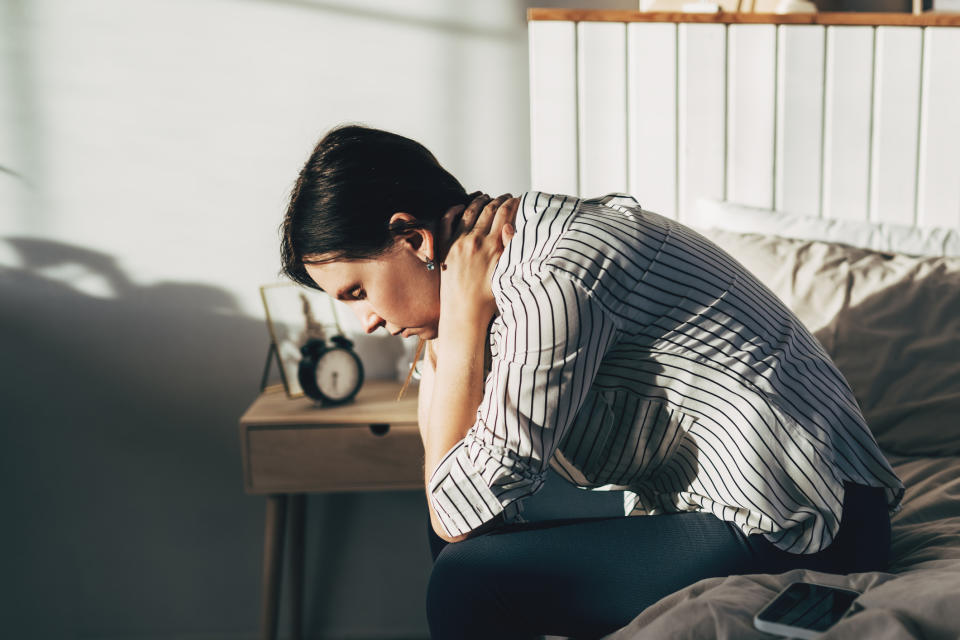
7."It was four people, and I will never forgive myself as long as I live. I was driving. My husband and three children were in the car. I was completely sober, maybe a little tired from work, but it was a mechanical problem. We didn’t hit another car or any other people. I was injured, but not badly. My husband, aged 30, and my children (8, 6 and 4) died. It has been decades since then. I never drove again."
—Anonymous, Quora
8."I am going to tell this in the hopes that others may think twice before killing someone. There was a deep sadness afterward, not only at the realization of going to prison but also at the fact that I took another life. It didn't matter that this man was abusing my 14-year-old little brother. I took the life of someone who was a son, a brother, and a friend to someone. In prison, when someone heard my story, they'd often say, 'Good job! Another POS off the streets.' But I did not feel the enthusiasm that they displayed. Oh, I would pretend I did, but inside, I was hurting."
"Parents, I beg you. Please, if your child comes to you about child abuse to them or their sibling, listen. Please listen. My God, I'm sorry."
—Vernie S., Quora
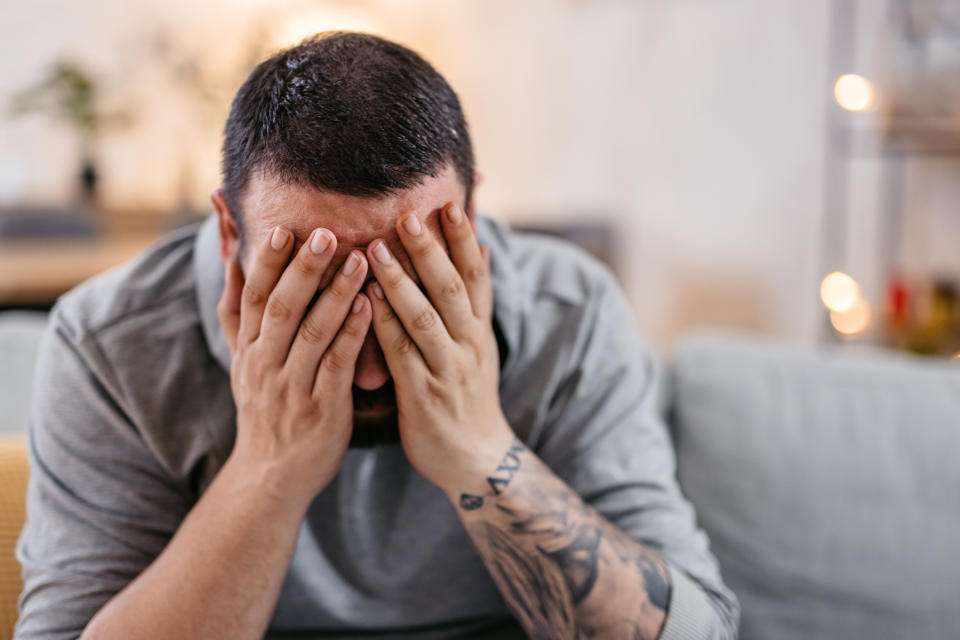
9."Today marks 16 years since I took the life of another human being. This act has been my greatest motivation in life, especially since realizing the impact my actions still have on my victim's family, as well as society. I know now that murder does not stop with the perpetrator and the victim. I killed my victim during the middle of the holiday season. I think about when his family comes together to enjoy the holidays, how they can't help but realize their loved one is missing."
"I think about the young men in the community where I took my victim's life and how hearing of my actions made murder an option for conflict resolution. I think of my son growing up in the same community where I committed this heinous crime. It is tough enough trying to become a man without your identity being attached to someone who took another human being's life.So, I would say I feel an extreme sense of debt and responsibility to my victim, his family, and society as a whole. I know that no matter what I accomplish with the rest of my life, I will never accomplish bringing the life I took back. My goal is to honor his memory by making positive changes in my life and educating others on being their authentic selves.I was disconnected from my feelings before I committed the crime that brought me to prison. The only emotion I felt comfortable expressing was anger, which I used to hide what I really felt. I overreacted to a lot of situations out of fear. Fear was something I believed no real man felt. Now, I realize that overreacting to situations only proved my fear of being me.Today, I am able to express my true feelings in any setting. This has become a great gift because allowing myself to be open and honest has allowed others to do the same with me.I am comfortable with all the emotions that most men run from or cover-up. This has allowed me to connect with people on a level I never thought possible. There was a time when I wasn't so comfortable with all these new emotions. I had become so sensitive to others' pain that I would get emotional from watching touching moments in movies. I shared this with a good friend, and he said it was because I had finally gotten in touch with my humanity.I never want to send another family through what I have sent my victim's family through, as well as my own. I move through life conscious of my purpose in showing all the aspects of being a man. Being a man is being human and experiencing all the emotions that come with it. Sometimes, strength is doing the opposite of most. May you be strong enough to allow yourself to be vulnerable."
—James H., Quora
(All communications between inmates and external channels are facilitated by approved volunteers since inmates do not have access to the internet. This program with Quora is part of The Last Mile San Quentin.)
(Entries have been edited for length and/or clarity.)
Dial 988 in the US to reach the National Suicide Prevention Lifeline. Other international suicide helplines can be found at befrienders.org. The Trevor Project, which provides help and suicide-prevention resources for LGBTQ youth, is 1-866-488-7386.
The National Alliance on Mental Illness helpline is 1-800-950-6264 (NAMI) and provides information and referral services; GoodTherapy.org is an association of mental health professionals from more than 25 countries who support efforts to reduce harm in therapy.


